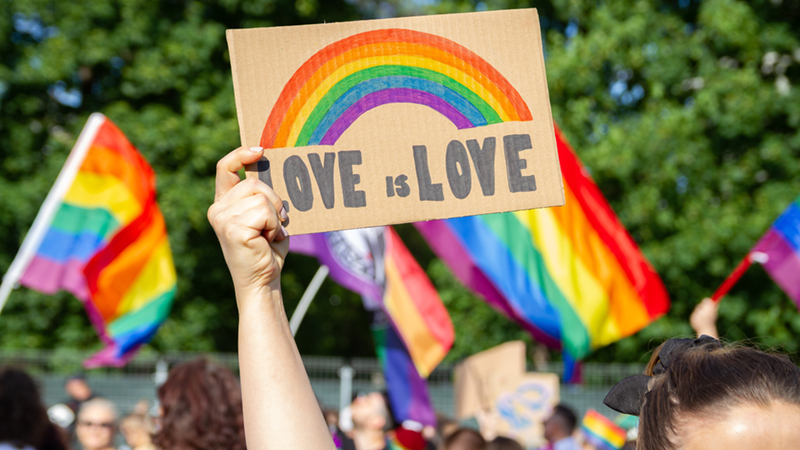
Where it all began
When most people think of ‘conversion therapy’ it will evoke torture scenes. Things like electroshock experiments or people forced to take medication against their wishes.
If these sorts of cruel practices were still legal, then of course no one would disagree with banning them.
But it should come as no surprise that there are already laws in place banning all such forms of abuse.
Despite this, LGBT activists repeatedly claim that “every single day in the UK, right now, people are being subjected to dehumanising torture” and call for ‘conversion practices’ to be banned.
If you dig a little deeper you’ll often find that behind the extreme rhetoric lies another agenda: to criminalise all those who question same-sex relationships or gender identity.
There is an astonishing disconnect between the ‘torture’ claims and this other, far more oppressive motive. We must ask how we got to this point. How have proposals developed into a ban so broad it could criminalise ordinary everyday things like conversations, prayers and parenting?
Róisín Michaux, a journalist based in Brussels, did a deep-dive into the evolution of the 'conversion therapy' ban.
In an Unherd article titled “The plot to redefine conversion therapy: A murky history shrouds the erasure of biological sex”, Michaux traces the steps taken to put a conversion therapy ban on the political agenda. You can read her full article here.
She illuminates the murky depths of peculiar evidence, mysterious meetings and unreliable testimonies that have paved the way to the demands activists make today.
Her starting point is 2006 in a place called Yogyakarta, where a collective of “29 high-profile UN representatives, human rights lawyers, academics and LGBTQ lobbyists” met to draft what are now called the ’Yogyakarta Principles’.
She explains how the city “became the epicentre of the global effort to remove biological sex as a category in law”.
That’s precisely what the ‘Principles’ set out to achieve, nonsensically claiming that countries had international obligations to fully adopt transgender ideology.
Michaux says: “At the heart of their campaign was a raft of evidence alleging to show the use of torture against gay, lesbian and trans-identifying people.”
But the evidence didn’t hold up.
She describes the involvement of Victor Madrigal-Borloz, the UN’s ‘Independent Expert on sexual orientation and gender identity’. She suggests he financially mismanaged Danish NGO International Rehabilitation Council for Torture Victims, which he left to take up his role at the UN.
LGBT activists often try to claim that the UN recommends banning ‘conversion therapy’, but really it’s just this one ‘Independent’ advisor who is encouraging countries to back a ban.
2014 was a historic year for the international campaign, although in the UK no one had begun to consider a law on ‘conversion therapy’.
Two key cases were used by campaign groups to legitimise their new cause.
Samuel Brinton was used as a “star witness” to tell the Convention Against Torture treaty experts in Geneva “of the horrific electric shocks and beatings that his therapists and parents had subjected him to in an effort to turn him straight”.
Though it was said to draw gasps from the UN panel, the testimony has since been called into question.
Around the same time a high profile suicide case involving a trans-identifying teenage boy in the US hit the headlines.
Joshua Alcorn, who identified as Leelah, criticised his Christian parents, who he said reacted negatively and “would only take me to Christian therapists, (who were all very biased)”.
Michaux notes: “A few days after his death, a White House petition calling for “Leelah’s Law” was launched. By March 2015, Obama said he would support a federal ban. By September, UN agencies began officially referencing torture in relation to violence against LGBT people.”
In December 2016 Malta became the first country to legislate for a ban. More countries have since followed.
Mardrigal-Borloz immediately started pushing for UN member states to legislate on conversion therapy.
The UK first carried out a survey which considered conversion therapy in 2017. The results were far from conclusive. It hadn’t explained what practices could be included, and failed to ask whether the practices took place in the UK or abroad, and whether they had happened recently or decades ago. Documents leaked in March 2022 showed the UK Government agreed the evidence base is far too weak.
Commenting on the situation in Ireland, Michaux writes: “after a failed first attempt to introduce a ban in 2018, Ireland is now having another go. This time it is backed up by an all-island (including Northern Ireland) group called the Anti-Conversion Therapy Coalition”.
When we look at the history, we find a policy dreamed up by a group of political elites. The ‘evidence’ used to justify banning conversion therapy is found either to be missing or is contrived to fit a certain narrative.
But these are laws which could trample human rights and hamper religious freedom. This is no time for ideologically-driven legislation.
Plans to outlaw conversion therapy – what to expect in 2026?
2025-12-23 09:47:27Aus Christians unite against extreme conversion therapy law
2025-12-10 12:15:40
